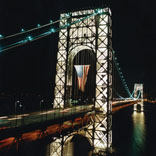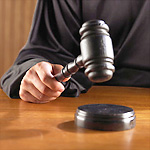 State Farm has done it again. Some years back they made quite a bit of law in a case called State Farm v. Campbell that went up to the U.S. Supreme Court on the issue of punitive damages that they had to pay for their conduct.
State Farm has done it again. Some years back they made quite a bit of law in a case called State Farm v. Campbell that went up to the U.S. Supreme Court on the issue of punitive damages that they had to pay for their conduct.
Now they got smacked again by a jury, this time for $2.5M in a case they offered to settle for $20K. This time, it was people victimized once by Katrina, before State Farm got to them for a second go-round:
Jan. 11 (Bloomberg) — State Farm Mutual Automobile Insurance Co. must pay a Mississippi couple $2.7 million for the loss of their property, a judge and jury ruled in a test case over how much Hurricane Katrina damage is covered by insurance.
The judge, deciding actual damages without the jury, awarded $223,000 for the home and belongings of Norman and Genevieve Broussard of Biloxi, Mississippi. The jury awarded punitive damages of $2.5 million for State Farm’s improper conduct in processing the claim…
The Broussards argued their house had been destroyed by wind or a tornado, a type of damage covered by insurance. State Farm, which is owned by policy holders, argued at trial that the loss stemmed from flooding, which the company’s policy didn’t cover.
…[U.S. District Judge L.T. ] Senter called the company’s handling of the claim “impermissible,” saying it offered the couple no choice except to sue over their claim.
“I find the defendant did not have any legal or arguable reason for refusing to pay,” Senter said today in federal court.
…Senter ruled today that Bloomington, Illinois-based State Farm, the largest U.S. auto and home insurer, failed to present enough evidence for the jury to be able to find that the policy terms didn’t cover the damage.
…The Broussards‘ attorney Bill Walker told the jury that his clients had been needlessly wronged by State Farm.
“Did they act like a good neighbor?” he asked, referring to the company’s famous slogan. “No, they acted like a cheat. They acted like a chiseler.”


